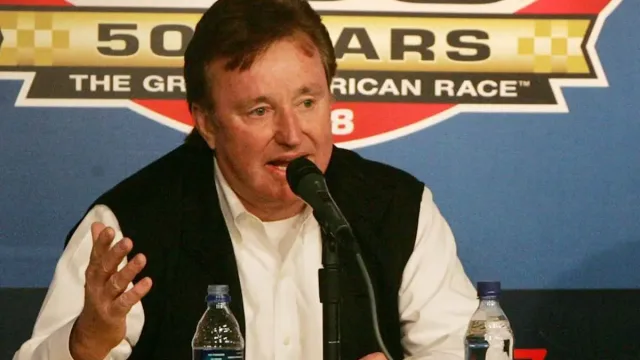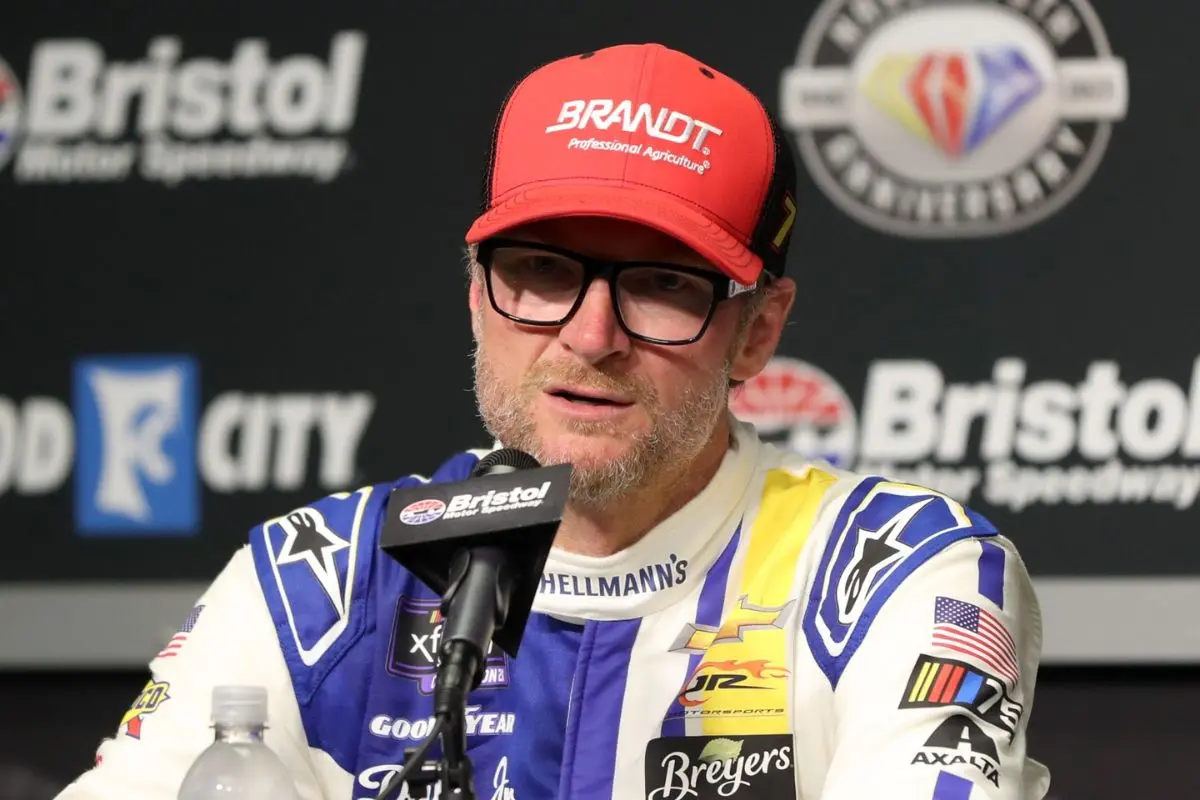Richard Childress forced to back down from his team’s appeal against NASCAR’s severe penalties highlights how strict the sport’s rules are. After losing the case, which was confirmed by the National Motorsports Appeals Panel, Richard Childress realized it was pointless to challenge NASCAR’s authority. This situation shows the strong control NASCAR has over teams and how important it is for teams to follow the rules to stay fair and competitive.
Key Highlights
- Richard Childress’s team appealed a NASCAR ruling but ultimately withdrew after the National Motorsports Appeals Panel upheld the initial decision.
- The ruling reinforced NASCAR’s authority and highlighted the strict enforcement of rules to maintain competitive integrity.
- Childress’s concession reflects the power dynamics between racing teams and NASCAR’s governing body.
- The appeal outcome resulted in the suspension of Brandon McReynolds from Phoenix activities, impacting team operations.
- This situation underscores the ongoing challenges teams face in balancing ambition with compliance to NASCAR regulations.
23XI Racing and Team Strategies for NASCAR Playoff Spots
As the strain of the NASCAR playoffs intensified, 23XI Racing found themselves at a vital crossroads, necessitating high-stakes tactics to secure their position in the NASCAR championship hunt. With the Final Four looming, the competition tightened, particularly with Ryan Blaney rapidly gaining on the tertiary championship slot. This created a fierce points battle for the final berth against William Byron, compelling 23XI Racing to adopt unconventional strategies in a bid to improve their standing.
The stress led to increasingly bold actions as the team weighed the risk versus reward of their decisions. In the environment of the NASCAR playoffs, teams like 23XI Racing resorted to tactics that strayed from the traditional playbook, pushing the boundaries of NASCAR’s regulations. Such strategies were not without consequences, as NASCAR took note and began imposing penalties on drivers involved in these aggressive plays.
Observing from the sidelines, veteran team owners like Richard Childress recognized the precarious nature of the situation, highlighting the fine line between tactical innovation and regulatory compliance.
As the NASCAR playoffs progressed, the actions taken by 23XI Racing demonstrated the broader trend within the sport, where the pursuit of victory often leads to a willingness to challenge established norms.
NASCAR’s Response: Hefty Fines and Suspensions
The mounting strain of the NASCAR playoffs prompted a swift and decisive response from the governing body, as the integrity of the sport was called into question. In an unprecedented move, NASCAR levied considerable penalties against three drivers, totaling $600,000 in fines. These actions were not merely punitive but were aimed at preserving the competitive spirit integral to the playoffs, where every point and position is fiercely contested.
The sanctions included substantial point reductions alongside suspensions for crew chiefs, spotters, and key team executives, specifically targeting those involved in the Phoenix race. Initially, the reactions from the teams were heated, reflecting the intense stakes of the season and the emotional investment of the personnel involved.
However, as 23XI Racing and other implicated teams assessed their chances of overturning the penalties, their resistance began to dissipate. The realization that the governing body’s decisions were backed by a firm regulatory framework led to a collective acknowledgment of NASCAR’s authority.
This decisive action serves as a reminder that NASCAR is committed to maintaining a level playing field. The hefty fines and suspensions not only highlight the serious consequences of rule violations but also act as a deterrent for future infractions.
Controversial ‘Rolling Roadblock’ and Wall Ride Tactics at Martinsville
Employing controversial tactics, teams at Martinsville ignited a heated debate about the ethics of racing strategies in NASCAR. The environment of the race brought forth a calculated maneuver known as the ‘rolling roadblock,’ executed by Austin Dillon and Ross Chastain to shield their teammate William Byron, who had dropped from the lead to sixth place.
This tactical collaboration, stemming from what many referred to as a “Chevy deal,” served to impede competitors, particularly Brad Keselowski, who was poised to overtake Byron.
The rolling roadblock strategy emphasizes the complex dynamics of teamwork and competition in NASCAR, where alliances can shift the balance of power on the track. The implications of such tactics extend beyond individual races, raising questions about the integrity of the sport as teams exploit loopholes in the rules.
Furthermore, the actions of Bubba Wallace’s team to facilitate Christopher Bell’s progress further highlight the lengths to which teams will go to secure an advantage.
However, the backlash was swift; 23XI Racing soon recognized the precariousness of their position and decided against appealing any potential penalties.
Trackhouse Racing’s Appeal and the Panel’s Verdict
Trackhouse Racing’s recent appeal to the National Motorsports Appeals Panel has highlighted the ongoing tension between competitive strategy and regulatory compliance in NASCAR. The panel, comprised of Kelly Housby, Lyn St. James, and Steve York, carefully reviewed the circumstances surrounding the appeal. Ultimately, they upheld NASCAR’s ruling, accentuating the importance of maintaining the sport’s integrity as outlined in rule 4.4.
The implications of this decision extended beyond Trackhouse Racing, as Richard Childress subsequently withdrew his team’s appeal. This choice brought to light the complex dynamics at play when past controversies, such as the infamous ‘Spingate’ incident in 2013, resurface. The ruling not only emphasizes the panel’s commitment to fair play but also triggered considerable repercussions for individuals involved, especially resulting in the suspension of Brandon McReynolds from upcoming Phoenix activities.
Richard Childress Racing withdrew its appeal
— Kelly Crandall (@KellyCrandall) November 7, 2024
This verdict serves as a striking reminder of the delicate balance between creative race strategies and the regulatory framework that governs them. As NASCAR continues to evolve, the decisions made by governing bodies like the National Motorsports Appeals Panel will play a critical role in shaping the future of competitive racing.
Persistent Penalties in NASCAR: Dale Earnhardt Jr.’s Call for Tougher Action
Persistent concerns regarding the effectiveness of penalties in NASCAR have prompted Dale Earnhardt Jr. to advocate for more stringent measures, including race suspensions for repeat offenders. Earnhardt Jr.’s call for tougher action stems from his observations of recurring infractions this season, particularly involving drivers like Austin Dillon and Bubba Wallace, who have found themselves at the center of controversial incidents.
“To really get someone’s attention, I think parking them a race – it will be enough of a deterrent for someone to not do it again.” – Dale Earnhardt Jr.
His advocacy highlights an essential issue: the current penalties may lack the deterrent effect necessary to curb unsportsmanlike conduct. Citing notable point deductions and fines imposed on teams such as Hendrick Motorsports and Kaulig Racing earlier this year, Earnhardt Jr. argues that these measures alone are insufficient.
The recent penalties following the Martinsville race further emphasize a need for reflection among teams, especially as they navigate the ramifications of failed appeals.
Earnhardt Jr. believes that without harsher consequences, the cycle of infractions will persist, undermining the integrity of the sport. The potential implementation of race suspensions could serve as a more effective deterrent, compelling drivers to adhere to the established standards of conduct.
As NASCAR continues to grapple with these persistent issues, Earnhardt Jr.’s perspective is a reminder that the sport must evolve its disciplinary framework. Striking the right balance between maintaining competitive spirit and ensuring fair play is vital for NASCAR’s future, and the dialogue surrounding penalties will need to adapt accordingly.
News in Brief: Richard Childress Forced to Back Down
The recent ruling against Richard Childress exemplifies the ongoing tension within NASCAR regarding competitive integrity and regulatory enforcement. As teams navigate the complexities of strategies, the imposition of fines and suspensions emphasizes the sport’s commitment to maintaining fair competition.
The controversy surrounding tactics such as the ‘Rolling Roadblock’ highlights a crucial point in NASCAR’s evolution, prompting calls for more stringent measures. The implications of these developments will markedly shape future team dynamics and race strategies.
ALSO READ: Richard Childress Racing’s Desperate Appeal for Penalties May Fail Miserably According to Dale Earnhardt Jr.



